TAIPEI, Taiwan — I just returned from visiting China for the first time since Covid struck. Being back in Beijing was a reminder of my first rule of journalism: If you don’t go, you don’t know. Relations between our two countries have soured so badly, so quickly, and have so reduced our points of contact — very few American reporters are left in China, and our leaders are barely talking — that we’re now like two giant gorillas looking at each other through a pinhole. Nothing good will come from this.
The recent visit by Taiwan’s president, Tsai Ing-wen, to the United States — which prompted Beijing to hold live-fire drills off Taiwan’s coast and to warn anew that peace and stability in the Taiwan Strait is incompatible with any move by Taiwan toward formal independence — was just the latest reminder of how overheated this atmosphere is. The smallest misstep by either side could ignite a U.S.-China war that would make Ukraine look like a neighborhood dust-up.
That’s one of the many reasons I found it helpful to be back in Beijing and to be able to observe China again through a larger aperture than a pinhole. Attending the China Development Forum — Beijing’s very useful annual gathering of local and global business leaders, senior Chinese officials, retired diplomats and a few local and Western journalists — reminded me of some powerful old truths and exposed me to some eye-popping new realities about what’s really eating away at U.S.-China relations.
Hint: The new, new thing has a lot to do with the increasingly important role that trust, and its absence, plays in international relations, now that so many goods and services that the United States and China sell to one another are digital, and therefore dual use — meaning they can be both a weapon and a tool. Just when trust has become more important than ever between the U.S. and China, it also has become scarcer than ever. Bad trend.
More personally, being back in Beijing was also a reminder of how many people I’ve come to know and like there over three decades of reporting visits — but please don’t tell anyone in Washington that I said that. There’s something of a competition today between Democrats and Republicans over who can speak most harshly about China. Truth be told, both countries have so demonized the other of late that it is easy to forget how much we have in common as people. I can’t think of any major nation after the United States with more of a Protestant work ethic and naturally capitalist population than China.
Being back was also a reminder of the formidable weight and strength of what China has built since opening to the world in the 1970s, and even since Covid hit in 2019. China’s Communist Party government has a stronger grip than ever on its society, thanks to its police state surveillance and digital tracking systems: Facial recognition cameras are everywhere. The party crushes any challenge to its rule or to President Xi Jinping. These days, it is extremely difficult for a visiting columnist to get anyone — a senior official or a Starbucks barista — to speak on the record. It was not that way a decade ago.
That said, one should have no illusions: The Communist Party’s hold is also a product of all the hard work and savings of the Chinese people, which have enabled the party and the state to build world-class infrastructure and public goods that make life for China’s middle and lower classes steadily better.
Beijing and Shanghai, in particular, have become very livable cities, with the air pollution largely erased and lots of new, walkable green spaces. As my Times colleague Keith Bradsher reported in 2021, Shanghai had recently built 55 new parks, bringing its total to 406, and had plans for nearly 600 more.
Keith, one of the handful of American reporters who lived in mainland China through nearly three years of stringent “zero Covid” policies, also pointed out to me that some 900 cities and towns in China are now served by high-speed rail, which makes travel to even remote communities incredibly cheap, easy and comfortable. In the last 23 years America has built exactly one sort-of-high-speed rail line, the Acela, serving 15 stops between Washington, D.C., and Boston. Think about that: 900 to 15.
I say this not to argue that high-speed trains are better than freedom. I say this to explain that being in Beijing reminds you that China’s stability is a product of both an increasingly pervasive police state and a government that has steadily raised standards of living. It’s a regime that takes both absolute control and relentless nation-building seriously.
For an American to fly from New York’s J.F.K. into Beijing Capital International Airport today is to fly from an overcrowded bus terminal to a Disney-like Tomorrowland. It makes me weep for all the time we have wasted these past eight years talking about a faux nation builder named Donald Trump.
On my first day in Beijing, I had a conversation with a young Chinese woman, a college student. Her first question, alluding to a book I wrote, was: “Mr. Friedman, is the world still flat?”
I explained why I thought it was flatter than ever by my definition — which was that because of steady advances in connectivity and digitization, more people can compete, connect and collaborate on more things for less money from more places than ever. During my time in Beijing, I was struck at how educated Chinese people seem to be more connected, and able to get around digital firewalls, than before.
I could see the woman wasn’t totally convinced by my explanation, so we moved on to other subjects. And then she dropped this: “I just used ChatGPT.”
I said, “You used ChatGPT from Beijing, and you’re asking me if the world is still flat?”
Indeed, a story making the rounds in Beijing is that many Chinese have begun using ChatGPT to do their ideology homework for the local Communist Party cell, so they don’t have to waste time on it.
It’s funny, though — just when you start to worry about the state of J.F.K. Airport, and all the stories in recent years that China was going to bury us in the race to A.I., an American team, OpenAI, comes up with the world’s leading natural language processing tool that enables any user to have humanlike conversations, ask any question and get deep insights in every major language, including Mandarin.
China got an early jump on A.I. in two realms — facial recognition technology and health records — because there are virtually no privacy restrictions on the government’s ability to build huge data sets for machine learning algorithms to find patterns.
But generative A.I., like ChatGPT, gives anyone, from a poor farmer to a college professor, the power to ask any question on any subject in his or her own language. This could be a real problem for China, because it will have to build many guardrails into its own generative A.I. systems to limit what Chinese citizens can ask and what the computer can answer. If you can’t ask whatever you want, including what happened in Tiananmen Square on June 4, 1989, and if your A.I. system is always trying to figure out what to censor, where to censor and whom to censor, it will be less productive.
“ChatGPT is prompting some people to ask if the U.S. is rising again, like in the 1990s,” Dingding Chen, a Chinese political scientist, told me and Keith.
It’s for all of these reasons that weighing the shifting power relationship between America and China has become such a popular pastime among elites in both of our countries. For instance, through social media, many Chinese got to see parts of the March 23 hearing on Capitol Hill where members of Congress questioned — or, actually, berated, harangued and constantly interrupted — TikTok’s chief executive, Shou Chew, claiming TikTok’s videos were damaging American children’s mental health.
Hu Xijin, one of China’s most popular bloggers, with almost 25 million followers on Weibo, China’s equivalent of Twitter, explained to me just how insulting Chinese found that hearing. It was widely and derisively commented about online in China.
(All that said, YouTube has been banned from China since 2009, so we’re not the only ones frightened by popular apps. I say we trade: We’ll accept TikTok if Beijing will let in YouTube.)
“I understand your feeling: You have been in the first place for a century, and now China is rising, and we have the potential to become the first — and that is not easy for you,” Hu said to me. But “you should not try to stop China’s development. You can’t contain China in the end. We are quite smart. And very diligent. We work very hard. And we have 1.4 billion people.”
Before the Trump presidency, he added: “We never thought China-U.S. relations would ever become so bad. Now we gradually accept the situation, and most Chinese people think there is no hope for better relations. We think the relationship will be worse and worse and hope that war will not break out between our two countries.”
It was repeated conversations like these that got me started asking American, Chinese and Taiwanese investors, analysts and officials a question that has been nagging at me for a while: What exactly are America and China fighting about?
A lot of people hesitated when I asked. Indeed, many would answer with some version of “I’m not sure, I just know that it’s THEIR fault.”
I’m pretty sure I’d get the same answer in Washington.
The best part of this trip has been uncovering the real answer to that question and why it stumps so many people. It’s because the real answer is so much deeper and more complex than just the usual one-word response — “Taiwan” — or the usual three-word response — “autocracy versus democracy.”
Let me try to peel back the layers. The erosion in U.S.-China relations is a result of something old and obvious — a traditional great-power rivalry between an incumbent power (us) and a rising power (China) — but with lots of new twists that are not always visible to the naked eye.
The old and obvious aspect is that China and America are jostling to acquire the most economic and military clout to shape the rules of the 21st century in ways most advantageous to their respective economic and political systems. And one of those disputed rules, which America has acknowledged but not endorsed, is China’s claim to Taiwan as part of “One China.”
Because that “rule” remains in dispute, we will continue to arm Taiwan to deter Beijing from seizing the island, crushing its democracy and using it as a jumping off point to dominate the rest of East Asia, and China will keep pushing for reunification — one way or another.
One of the twists, though, is that this standard-issue great-power rivalry is occurring between nations that have become as economically intertwined as the strands of a DNA molecule. As a result, neither China nor America has ever had a rival quite like the other.
America knew how to deal with Nazi Germany, an economic and military peer, but a country with which we were not deeply economically intertwined. America knew how to deal with the Soviet Union, a military peer but nowhere near our economic peer, and a country with which we were not economically intertwined at all.
Ditto China. For several thousand years China saw itself as situated in the middle of the world — hence it referred to itself as Zhong Guo, the Middle Kingdom — protected by mountains, deserts and seas on all sides, and often dominating states around it, while fiercely preserving its own culture. That was until the 19th century, when it began to be repeatedly ravaged by stronger foreign powers: Britain, France, Russia and Japan.
But in modern times, China, like America, has never had to deal with a true economic and military peer with which it was also totally intertwined through trade and investment.
How intertwined? Americans’ favorite device is an iPhone assembled mostly in China, and until recently the favored foreign destination of Chinese college students — some 300,000 of them today — is America. That makes for some weird scenes, like watching one country shoot down another country’s intelligence balloon just after the two countries in 2022 set a record in annual bilateral trade.
Another new twist, and a reason it’s hard to define exactly what we’re fighting about, has a lot to do with how this elusive issue of trust and the absence of it have suddenly assumed much greater importance in international affairs.
This is a byproduct of our new technological ecosystem in which more and more devices and services that we both use and trade are driven by microchips and software, and connected through data centers in the cloud and high-speed internet. When so many more products or services became digitized and connected, so many more things became “dual use.” That is, technologies that can easily be converted from civilian tools to military weapons, or vice versa.
In the Cold War it was relatively easy to say that this fighter jet is a weapon and that that phone is a tool. But when we install the ability to sense, digitize, connect, process, learn, share and act into more and more things — from your GPS-enabled phone to your car to your toaster to your favorite app — they all become dual use, either weapons or tools depending on who controls the software running them and who owns the data that they spin off.
Today, it’s just a few lines of code that separate autonomous cars from autonomous weapons. And, as we’ve seen in Ukraine, a smartphone can be used by Grandma to call the grandkids or to call a Ukrainian rocket-launching unit and give it the GPS coordinates of a Russian tank in her backyard.
This, too, leads to more weird twists. I am thinking of how a number of U.S. armed forces branches have banned TikTok from government-issued smartphones and computers. This is surely the first time that the Pentagon has banned an app that is mostly known for sharing dance moves. But there is a real fear that TikTok’s highly addictive algorithm is dual use and could be repurposed by the Chinese intelligence service to amass data on our youth — more than 150 million Americans have downloaded the app, the company says — to scramble their brains, spread disinformation or collect information that could one day be used for blackmail.
And the twists just keep on coming. For the first 30 or so years after Beijing opened up to trading with the world, starting around 1978-79, China largely sold America what I call “shallow” goods — shoes, socks, shirts and solar panels.
Meanwhile, America and the West tended to sell China what I call “deep goods” — goods that went deep into their systems and were dual use — namely software, microchips, bandwidth, smartphones and robots. China had to buy our deep goods because, until relatively recently, it could not make many itself.
As long as most of what China sold us was shallow goods, we did not care as much about its political system — doubly so because it seemed for a while as if China was slowly but steadily becoming more and more integrated with the world and slightly more open and transparent every year. So, it was both easy and convenient to set aside some of our worries about the dark sides of its political system.
But then, about eight years ago, we got a knock on our door and there was a Chinese salesman. He said: “Hi, my name is Mr. Huawei and I make 5G telephone equipment better than anything you have. I’m starting to install it all over the world, and I’d like to wire America.”
What America essentially told this Huawei salesman, as well as other rising Chinese high-tech firms, was this: “When Chinese companies were just selling us shallow goods, we didn’t care if your political system was authoritarian, libertarian or vegetarian; we were just buying your shallow goods. But when you want to sell us ‘deep goods’ — goods that are dual use and will go deep into our homes, bedrooms, industries, chatbots and urban infrastructure — we don’t have enough trust to buy them. So, we are going to ban Huawei and instead pay more to buy our 5G telecom systems from Scandinavian companies we do trust: Ericsson and Nokia.”
The role of trust in international relations and commerce took one more great leap for another reason: As more and more products and services became digitized and electrified, the microchips that powered everything became the new oil. What crude oil was to powering 19th- and 20th-century economies, microchips are for powering 21st-century economies.
So today, the country or countries that can make the fastest, most powerful and most energy efficient microchips can make the biggest A.I. computers and dominate in economics and military affairs.
But here’s the rub: Because the physics of making advanced logic chips has become so complex — a human hair is about 90,000 nanometers thick and the world’s best mass producer of advanced chips in the world is now making 3-nanometer transistors — no one country or company can own the whole supply chain. You need the best from everywhere, and that supply chain is so tightly intertwined that each company has to trust the others intimately.
China doesn’t need to look far for that lesson. It is on display right across the Straits of Taiwan, at the world’s greatest chip-making company, Taiwan Semiconductor Manufacturing Company, better known as TSMC.
After I left Beijing, I came to Taiwan, where I spent an afternoon with the leaders of TSMC at their headquarters in Hsinchu Science Park, a 90-minute drive south of Taipei, the capital. When you ask them what is the secret that enables TSMC to make 90 percent of the world’s most advanced logic chips — while China, which speaks the same language and shares the same recent cultural history, makes zero — their answer is simple: “trust.”
TSMC is a semiconductor foundry, meaning it takes the designs of the most advanced computer companies in the world — Apple, Qualcomm, Nvidia, AMD and others — and turns the designs into chips that perform different processing functions. In doing so, TSMC makes two solemn oaths to its customers: TSMC will never compete against them by designing its own chips and it will never share the designs of one of its customers with another.
“Our business is to serve multiple competitive clients,” Kevin Zhang, senior vice president for business development at TSMC, explained to me. “We are committed not to compete with any of them, and internally our people who serve customer A will never leak their information to customer C.”
But by working with so many trusted partners, TSMC leverages the partners’ steadily more complex designs to make itself better — and the better it gets, the more advanced designs it can master for its customers. This not only requires incredibly tight collaboration between TSMC and its customers, but also between TSMC and its roughly 1,000 local and global critical suppliers.
“Our customers are very demanding,” added Zhang. “Their products each have unique requirements.” They each “tell us what they want to do, and together we figure out how TSMC will design the process to make it.” As the physics of chip making gets more and more extreme, “the investment from customers is getting bigger and bigger, so they have to work with us more closely to make sure they harvest as much [computing power] as they can. They have to trust you.”
China also has a foundry, Semiconductor Manufacturing International Corporation, which is partly state-owned. But guess what? Because no global chip designers trust SMIC with their most advanced designs, it is at least a decade behind TSMC.
It’s for these reasons that the erosion in U.S.-China relations goes beyond our increasingly sharp disagreements over Taiwan. It is rooted in the fact that just when trust, and its absence, became much bigger factors in international affairs and commerce, China changed its trajectory. It made itself a less trusted partner right when the most important technology for the 21st century — semiconductors — required unprecedented degrees of trust to manufacture and more and more devices and services became deep and dual use.
Why did China lose our trust?
After the period of China’s isolation and internal turmoil under Mao Zedong ended with his death in 1976, a successor, Deng Xiaoping, made a 180-degree turn away from Maoism. Deng established a much more collective leadership for China and term limits for the top leaders and put pragmatism — whatever will drive economic growth — above Communist ideology, while hiding China’s growing strength.
In the era of Deng and his successors — in the 1980s, 1990s and early 2000s — Beijing forged strong economic and educational ties with the U.S., which ushered China into the World Trade Organization, on the condition that China gradually phase out its mercantilist practice of funding state-owned industries and that it gradually open itself to more foreign investment and ownership, as much as the world opened itself to China’s exports.
But after Xi Jinping took over as China’s paramount leader in 2012, he seemed to be alarmed at how China’s openness toward the world, its consensus approach to leadership and its rush down a semi-capitalist path had led to runaway corruption inside both the Communist Party and the People’s Liberation Army, to a degree that was hurting the party’s legitimacy.
So Xi centralized power into his own hands, crushed all the fiefs that had been created by different leaders of different government agencies and sectors of the economy, re-injected the authority of the Communist Party into every corner of business, academia and society and deployed pervasive surveillance technologies. All together, this reversed what seemed like China’s steady march toward more openness — and even a somewhat freer press.
Xi also basically shifted away from Deng’s unabashed unleashing of the private sector, focusing instead on building national economic champions that could dominate all the key industries of the 21st century — from A.I. to quantum computing to aerospace — and making sure Communist Party cells were in their management and in their work forces. And when American trade officials said, “Hey, you need to live up to your W.T.O. commitments to restrict state-funding of industries,” China basically said, “Why should we live by your interpretation of the rules? We are now big enough to make our own interpretations. We’re too big; you’re too late.”
Combined with China’s failure to come clean on what it knew about the origins of Covid-19, its crackdown on democratic freedoms in Hong Kong and on the Uyghur Muslim minority in Xinjiang, its aggressive moves to lay claim to the South China Sea, its increasing saber rattling toward Taiwan, its cozying up to Vladimir Putin (despite his savaging of Ukraine), Xi’s moves toward making himself president for life, his kneecapping of China’s own tech entrepreneurs, his tighter restrictions on speech and the occasional abduction of a leading Chinese businessman — all of these added up to one very big thing: Whatever trust that China had built up with the West since the late 1970s evaporated at the exact moment in history when trust, and shared values, became more important than ever in a world of deep, dual-use products driven by software, connectivity and microchips.
As that happened, it started to matter a lot more to Western nations generally and the U.S. in particular that this rising power — which we were now selling to or buying from all sorts of dual-use digital devices or apps — was authoritarian.
Beijing, for its part, argues that as China became a stronger global competitor to the U.S. — in deep goods like Huawei 5G — the U.S. simply could not handle it and decided to use its control over advanced semiconductor manufacturing and other high-tech exports from America, as well as from our allies, to ensure China always remained in our rearview mirror. So Beijing came up with a new strategy, called “dual circulation.” It said: We will use state-led investments to make everything we possibly can at home, to become independent of the world. And we will use our manufacturing prowess to make the world dependent on our exports.
Chinese officials also argue that a lot of American politicians, led by Trump but echoed by many in Congress, suddenly seemed to find it very convenient to put the blame for economic troubles in the U.S.’s middle class not on any educational deficiencies, or a poor work ethic, or automation or the 2008 looting by financial elites, but on China’s exports to America. As Beijing sees it, China not only became America’s go-to boogeyman, but in their frenzy to blame Beijing for everything, members of Congress started to more recklessly promote Taiwan’s independence.
A senior administration official told me that Xi told President Biden at their summit in Bali in November, in essence: I will not be the president of China who loses Taiwan. If you force my hand, there will be war. You don’t understand how important this is to the Chinese people. You’re playing with fire.
Nevertheless, it’s clear to me that at some level Chinese officials now understand that, as a result of their own aggressive actions in recent years on all the fronts I’ve listed, they have frightened both the world and their own innovators at precisely the wrong time.
I say that because of how often senior Chinese officials tell every foreign leader and visiting Western business executive they meet today that China is “open” and eager for foreign investment. The reality is, it has to be more open to foreign direct investment because China’s provinces desperately need capital to compensate for all the money each local government spent controlling Covid and because many of them are running out of land to sell for state-owned factories to raise money.
I also don’t think it was an accident of timing that Jack Ma, the founder of Alibaba and sort of the Steve Jobs of China, suddenly reappeared a few weeks ago in state-controlled media after having suddenly disappeared from public view in 2020. Ma had vanished after a disagreement with state regulators, who thought he was getting too big and independent. His disappearance sent shock waves through China’s start-up community and curbed investments.
I have no problem saying that I would like to live in a world where the Chinese people are thriving, alongside all others. After all, we are talking about more than one out of six people on the planet. I don’t buy the argument that we are destined for war. I believe that we are doomed to compete with each other, doomed to cooperate with each other and doomed to find some way to balance the two. Otherwise we are both going to have a very bad 21st century.
I have to say, though, Americans and Chinese remind me of Israelis and Palestinians in one respect: They are both expert at aggravating the other’s deepest insecurities.
China’s Communist Party is now convinced that America wants to bring it down, which some U.S. politicians are actually no longer shy about suggesting. So, Beijing is ready to crawl into bed with Putin, a war criminal, if that is what it takes to keep the Americans at bay.
Americans are now worried that Communist China, which got rich by taking advantage of a global market shaped by American rules, will use its newfound market power to unilaterally change those rules entirely to its advantage. So we’ve decided to focus our waning strength vis-à-vis Beijing on ensuring the Chinese will always be a decade behind us on microchips.
I don’t know what is sufficient to reverse these trends, but I think I know what is necessary.
If it is not the goal of U.S. foreign policy to topple the Communist regime in China, the U.S. needs to make that crystal clear, because I found a lot more people than ever before in Beijing think otherwise.
And by the way, in today’s fused world, the notion that China can economically collapse and America still thrive is utter fantasy. And the notion that the Europeans will always be with us in such an endeavor, given the size of China’s market, may also be fanciful. Note French President Emmanuel Macron’s bowing and scraping in Beijing last week.
As for China, it can tell itself all it wants that it has not taken a U-turn in recent years. But no one is buying it. China will never realize its full potential — in a hyper-connected, digitized, deep, dual-use, semiconductor-powered world — unless it understands that establishing and maintaining trust is now the single most important competitive advantage any country or company can have. And Beijing is failing in that endeavor.
In his splendid biography of the great American statesman George Shultz, Philip Taubman quotes one of Shultz’s cardinal rules of diplomacy and life: “Trust is the coin of the realm.”
Never has that been truer than today, and never has China been more in need of embracing that truth.

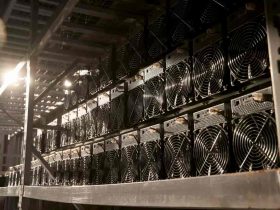

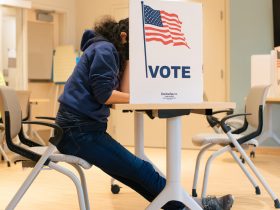
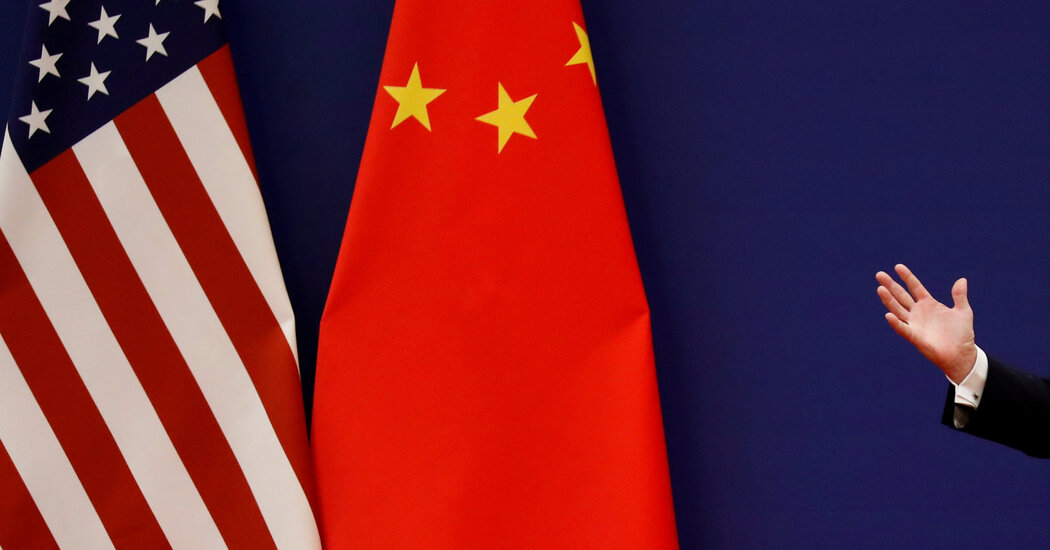

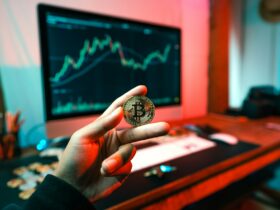
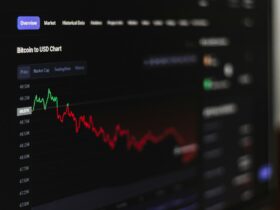
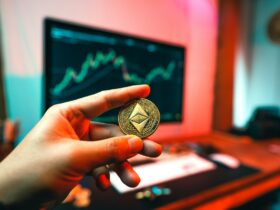
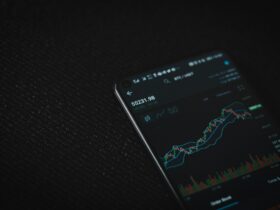
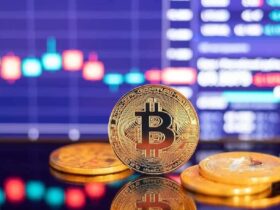

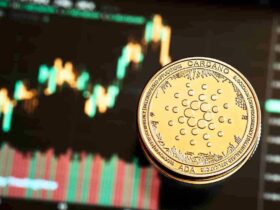
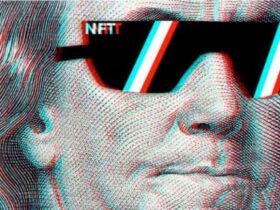


Leave a Reply